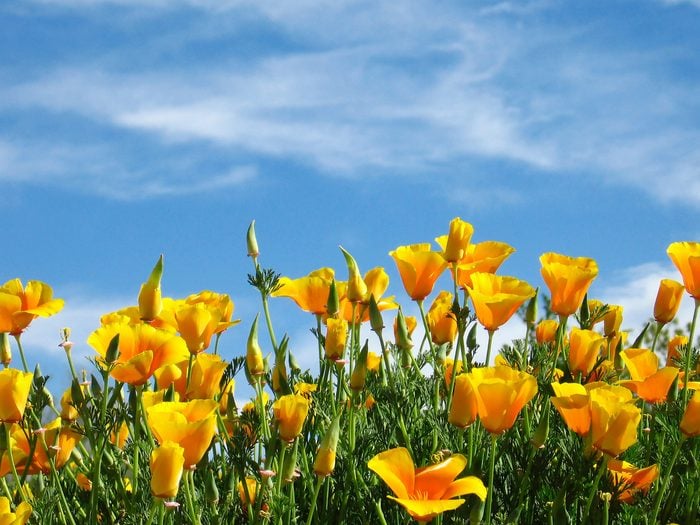
Contributed by Vicki Nelson, Temple Rodef Shalom, Falls Church; Susan Posey, Redeemer Lutheran, McLean
Spring 2024 is marked by religious observations for people of many different faith traditions. We are a nation founded on the principle of religious freedom and we celebrate that the First Amendment to the US Constitution ensures that everyone has the right to practice their own religion – or no religion at all.
But this spring, we also mourn for all who are so horribly impacted by war and violence – in the Middle East, Sudan, Ukraine. And we witness with concern deep divisions and distrust even in our local communities.
So, as we observe the sacred days of our various faith traditions, may we be joined in a prayer for peace. May we acknowledge the sacred value of each life and the rights of all people to safety and well-being. And when we feel powerless and overwhelmed by events in the world and here at home, may we redouble our efforts to love our neighbors and treat one another with the dignity, compassion, and respect we all deserve.
The following is a summary of some of the rich and varied holy days being observed in the coming months. We hope you will read each brief piece, knowing that education is the road to understanding.
Spring 2024 Religious Observations:
Lent (Christian). February 13:
Beginning on Ash Wednesday, Lent is the forty weekdays leading up to Easter. It is a time dedicated to repentance, reflection, and deepening of one’s relationship with God in preparation for Easter.
Ramadan (Islam). Begins March 10:
Ramadan occurs during the ninth month of the Islamic lunar calendar. It lasts twenty-nine or thirty days, depending on when the new crescent moon is visible. This period of fasting and spiritual growth is one of the five Pillars of Islam. It is the prevailing belief among Muslims that it was in the last nights of Ramadan that the Holy Quran was revealed to the Prophet Muhammad. In addition to daily fasting, Muslims participate in daily prayer, reflection, study of the Quran, and community.
Naw-Ruz (Baha’i). March 19-20:
Naw-Ruz, the Baha’i New Year, coincides with the spring equinox and is an ancient Persian festival celebrating the “new day.” For Baha’is it marks the end of the annual nineteen-day fast and is one of the nine holy days of the year when work is suspended.
Purim (Jewish). March 23-24:
Purim is a joyous Jewish holiday, celebrated in costume with noisemakers and merriment. The full story can be found in the Book of Esther, the 24th and final book in the Hebrew Scriptures. The story, which is purely fantastical and not based on any historical event, is about a king ruling in Persia. The king is fooled by his royal vizier, who wants to take revenge on a Jew who refuses to bow down to him. The king signs an order that all the Jews in the kingdom are to be killed. The heroine, Queen Esther the king’s wife, learns of the plot, uses her position to turn the tables and the villain is killed and the Jews are spared. Jews use this occasion to exchange gifts of food and drink, give charity to the poor, eat a celebratory meal, and participate in a public reading of the Book of Esther.
Holi (Hindu). March 25:
This Hindu holiday occurs on the full moon of the month of Phalguna on the Hindu calendar. It is also known as the Festival of Love, Spring and Colors. It is a celebration of the divine love of the deities Radha and Krishna, and good over evil. The evening and day celebration is known for its bonfires and for the joyous throwing of colored powder and powder solutions by Hindus and non-Hindus, alike. The arrival of spring is celebrated, and people have the opportunity to repair broken relationships.
Easter (Christian). March 31 (Note — Eastern Orthodox Easter is May 5):
On the Christian Liturgical calendar, this day is “The Resurrection of our Lord.” It is one of the central holy days of Christianity. Christians believe that on this day, Jesus Christ, who was crucified on “Good Friday” was resurrected from the dead, thus conquering death and sin. It is the joyful conclusion to the Lenten season of prayer, fasting and reflection.
Eid al-Fitr (Islam). April 9-10:
Eid al-Fitr marks the end of the fasting season of Ramadan. It is typically celebrated by a large community-wide prayer service, at which charitable donations are collected, followed by meals and conversation with family and friends.
Baisakhi (Sikh). April 13:
Baisakhi is the highest celebration for Sikhs. It is a time of rededication and renewal of faith. Many people take part in a special baptism to become Khalsa (or pure ones) at this blessed time of year.
Festival of Ridvan (Baha’i). April 21 – May 3:
This annual Baha’i festival commemorates the twelve days when Baha’u’llah, the founder of the Baha’i Faith, publicly proclaimed His mission as God’s messenger for this age. The first day, the ninth day, and the twelfth day are celebrated as holy days when work is suspended.
Passover (Jewish). April 22-30:
Passover is a major Jewish holiday that occurs in the spring and is one of three pilgrimage holidays. Celebrated for seven or eight days depending on which denomination of Judaism you participate in; it marks the Israelites’ escape from Egypt and their slavery under Pharoah. This is another Jewish holiday dealing with the theme of freedom. The story, told around the Seder table on the first two nights of the holiday, comes from the Book of Exodus. The celebration is marked by the commandment in Exodus 12:15 that you shall eat unleavened bread, which we know as matzah, for the duration of the holiday.
Vesak (Buddhist). May 23:
The biggest and most important holiday celebrated by all Buddhist schools is called Vesak (Vesakha), or Enlightenment Day. All Buddhist schools agree it’s the Buddha’s birthday. On Vesak Day Buddhist temples are decorated with flags and flowers, and devotees assemble in temples for ceremonial rituals. To honor the day, Buddhists aspire to practice love, peace and harmony by participating in volunteer and civic activities that benefit all humanity.
This blog post is the expressed opinion of its writers and does not necessarily reflect the views of Tysons Interfaith or its members.

Contributed by Stephen Wickman, St. Thomas Episcopal, McLean
One reason I belong to St. Thomas Episcopal Church is because our patron saint – known popularly as “Doubting Thomas” – reflects the broad theology of the Anglican Communion, particularly its American counterpart. Our conceit is that we uniquely straddle reformed and non-reformed Christian traditions, which is probably an unfair exaggeration, but I was reminded of this during the kickoff of a new, bi-weekly McLean tradition: “Pints with Doubting Thomas.”

The subject was “theodicy” or the problem of evil” — perhaps the biggest stumbling block to religion for many non-believers. How can a God whom we describe as supremely loving and good allow suffering and evil to exist? Or as Rabbi Harold Kusher asked in a best-selling book from 1981: what do we do “When Bad Things Happen to Good People”? https://a.co/d/hUGaInQ
Our Assistant Rector and Parish Administrator gave four answers to this dilemma, which I must admit would not perplex an atheist. First, is the idea of a “perfect plan,” which stems from the Calvinist doctrine that everything, including suffering, is part of God’s plan. Second, is the doctrine of “free will,” the dominant non-reformed view that a world of free choice is better than a world of slavish devotion and that we must have the capacity to make good or bad choices, some of which lead to suffering, etc. Third, is the idea of “spiritual warfare” between Satan – the cause of all evil and suffering – and God, who will win in the end with the help of his recruits. Finally, there is “soul-making,” the idea that although God knew free will would lead to suffering, God intends us to become better and more complete as we grow out of this purposeful and instructive suffering.
Rabbi Kushner, struggling with the loss of his own son to a horrible, debilitating disease, gravitates toward the soul-making view. “I would say that God may not prevent the calamity, but He [sic] gives us the strength and perseverance to overcome it.”
Whatever your perspective, I invite you to join us next Wednesday, March 13, to continue the discussion. This time we will consider less traditional theodicies, including anti-theodicy (the idea that we should not attempt to defend God in the face of evil). If all this sounds a bit esoteric, it goes down much better with good company and a pint of ale.
This blog post is the expressed opinion of its writer and does not necessarily reflect the views of Tysons Interfaith or its members.
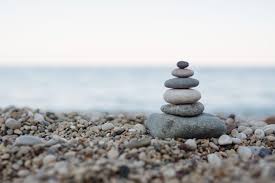
Contributed by Stephen Wickman, St. Thomas Episcopal, McLean
More than anything else, spirituality is a quest to find one’s authentic self, to review and interpret life events and develop a sense of personal integrity; and it should not be confused with religion, which remains nevertheless an important path for many.
That was the consensus of a February 4 webinar presented by the Rev. Dr. Al Fuertes of George Mason University’s School of Integrative Studies, which joined Tysons Interfaith to explore the connection between spirituality and well-being. Most heartening was Dr. Fuertes’s report that his students and nearly two-thirds of college students polled nationwide long to discuss things that matter to them on the personal level, things that are meaningful and purposeful and in which they can find beauty and meaning.
People who successfully perform this kind of soul-searching and synthesis develop the best potential to perceive and enjoy a good quality of life. Such meaning-making involves being mindful about our emotions, thoughts, and surroundings, a kind of mindfulness that many researchers and practitioners also recommend for achieving good health outcomes, like stress reduction.
Although well-being is not just the absence of disease or illness but a complex combination of a physical, mental, emotional, and social factors, once we are able to find our authentic vocation, our true self, or what some call our “sacred face,” we can achieve a sense of purpose that has been linked to a lower risk of mortality. Other studies have found out that prayer or healing ceremonies can have positive outcomes on alleviating symptoms and improving quality of life. And, arguably, achieving this kind of personal well-being can help bring peace to the broader community.
We hope to explore more of these applied approaches to spirituality in future Oneness of Humanity programs. Please join us.
This blog post is the expressed opinion of its writer and does not necessarily reflect the views of Tysons Interfaith or its members.
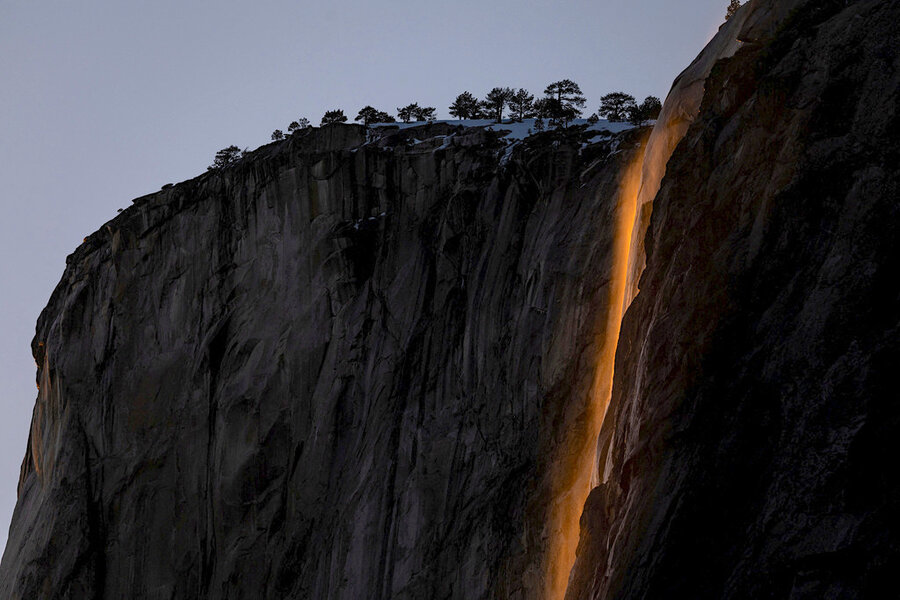
Contributed by Lois Herr, First Church of Christ, Scientist, McLean
On February 4, 2024, Tysons Interfaith will partner with George Mason University for an Webinar entitled Spirituality and Well-Being: Exploring the Connection. As we prepare for this engaging and interactive event, I wanted to share a recent article from the Christian Science Monitor, that is completely relevant to our upcoming discussion. It is entitled: “The glue of seeing good.”
I hope many people will be interested in joining our February 4 webinar, and/or may be encouraged by the findings of this article:
“The glue of seeing good”
Surveys show a breadth of spirituality binding Americans to each other in connections of empathy and affection.
The Christian Science Monitor: December 21, 2023
Worried that Americans are marching into an election year more divided than ever? Take another look.
In October, a first-ever Connection Index offered a striking counternarrative. Conducted by The Harris Poll, it found that 76% of Americans see the good in those they disagree with and 71% have friends who hold views they don’t share.
Those attitudes may reflect something more than mere personal affection. A new survey of American spirituality reveals a deeper basis of thought binding society together. Published by the Pew Research Center this month, the study asked more than 11,000 Americans how they thought about spirituality. It found a recurring theme of connectedness.
For example, 74% described “being connected with something bigger than myself” as an essential quality of spirituality. Seventy percent said the same about “being connected with God,” while 64% said “being connected with my ‘true self’” and 54% said “being open-minded” were essential to spirituality. Nearly 4 in 10 said spirituality involved “being connected with other people.”
Overall, the survey found, 9 in 10 Americans believe in God or a power higher than themselves, 70% describe themselves as spiritual, and 53% expressed a “deep sense of connection with humanity.” These views were drawn from across multiple demographic and denominational boundaries.
For years, medical practitioners have been gathering evidence that spirituality is a vital factor in health. Some 90% of medical schools in the United States, 59% in Britain, and 52% in German-speaking countries now include spiritual studies in their curricula. As the Pew study notes, society is drawing new distinctions between being spiritual and being religious. Doctors and nurses incorporating spirituality in health care often start with the simple act of listening.
“When I think of spirituality in health care, it’s the connection we make with other people,” Diana Vereni, an associate professor of physical therapy at Sacred Heart University in Connecticut, told a public forum in July. Such empathy and compassion promote healing by alleviating fear and affirming a sense of individual worth, medical studies have shown.
They have a similar effect on society as a whole. “Social connectedness influences our minds, bodies, and behaviors – all of which influence our health and life expectancy,” the Centers for Disease Control and Prevention concluded in a March study. “Inclusive connections in our neighborhoods, schools, places of worship, workplaces, and other settings are associated with … and support the overall well-being, health, safety, and resilience of communities.”
For one respondent in the Pew study, spirituality meant being able to “see the beauty in everything, feel the love of Mother Nature, to know that there is something out there that is greater than me, that loves me, that looks out for me.” That kind of seeing good may be the reason behind the Connection Index finding that Americans don’t need to agree in order to get along.”
This blog post is the expressed opinion of its writer and does not necessarily reflect the views of Tysons Interfaith or its members.
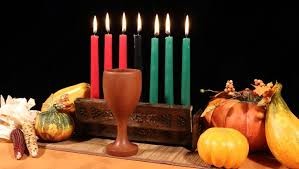
I attended a recent holiday choral concert, during which I was introduced to the principles of Kwanzaa (this year, December 26 through January 1, 2024). One of those principles is Nia – purpose. The Northern Virginia Chorale sang a beautiful hymn composed by Glenn Burleigh questioning our purpose as human beings created by God. I found the questions and conclusions of this hymn to be quite moving.
“Why was I born? Why was I born?
Was I born to feed hungry children, or to give shelter to the homeless?
Was I born to be my brother’s keeper, companion to the lonely?
I was born to love the Lord with all my heart, my soul, my mind, and strength.
If I love God I can love all people.
This is my purpose. Nia.
Why was I born? Why was I born?
Was I born to preach the Gospel, or to care for aging parents?
Was I born to help the unwed mothers or council the pris’ner?
I was born to love the Lord with all my heart, my soul, my mind, and strength.
If I love God I can love all people,
If I love all people, I can love God!
This is my purpose.
This is why I sing my song.
Nia, Nia, Nia.”
Preparation for and celebration of the December holidays is an opportunity for personal reflection and contemplation. I am asking “what is my purpose during this holiday time” and the larger question: “what is my purpose in life going forward?” This song suggests that loving God and loving all people is my purpose.
This blog post is the expressed opinion of its writer and does not necessarily reflect the views of Tysons Interfaith or its members.

Over the last few weeks, these words have become my daily prayer: “Let there be peace on earth.” With the war in Ukraine entering its twenty-first month and the war in Israel and Gaza expected to continue into the new year, the loss of lives and the displacement of people have been overwhelming. In places like Myanmar and Sudan there is constant civil unrest that affects the innocent. Conflict has become the norm rather than the exception even in our own country. And yet it is in our current context that Christians enter the Advent season (December 3 through December 24) to prepare ourselves not only for the celebration of the birth of Jesus Christ but for his Second Coming.
Advent comes with four major themes to meditate upon – peace, hope, joy, and love. This is a reflection on peace.
For those of us who are older (smile), the title of this article should sound familiar. It comes from a well-known Christmas song that was written in 1955 by Jill Jackson-Miller. She wrote the lyrics and her husband, Sy Miller, wrote the melody.
Let there be peace on earth, and let it begin with me.
Let there be peace on earth, the peace that was meant to be.
With God, our creator, family are we. Let us walk with each other in perfect harmony.
The song was introduced at a retreat center in California for a group of young people who were from a wide variety of religious, ethnic, and socioeconomic backgrounds. They were there for a week-long experience to develop friendships with people who held different views from their own. They attended educational seminars that enabled them to learn the skills they needed to have open and healthy discussions on difficult topics. By the end of the week, it was the hope that they would be able to work together. It is in this setting that this song was introduced. It turned out to be a perfect ending to an amazing week. Once the young people learned the lyrics, they got up, locked arms, formed a circle, and faced each other as they sang this song of peace. It is a simple song with a powerful message that has been recorded and translated and sung all over the world.
In the Old Testament, the word for peace is shalom which is derived from a root word that means wholeness or completeness. In the Bible, it has less to do with the absence of war and conflict and has more to do with our overall well-being. When someone says they are at peace, they are letting us know that they are content even when in the middle of a hardship or struggle. They know (truly know) that God is with them. It has the same connotation in the New Testament. Jesus expresses the idea that peace comes from peacemakers and true peacemakers are characterized by their poverty of spirit, their ability to mourn for their broken world, and for their hunger for healing and reconciliation.
Too often we restrict our thoughts about peace as simply the end of conflicts. Certainly, an end to violence is something that we should pray for in Ukraine, the Middle East, in our community, and even in our homes. But it seems like the peace that is talked about in Scripture is more than the absence of something negative. It has its own presence and energy. It is a gift from God that occurs when we turn over to God a certain amount of control of all the things that we worry about. We do not surrender responsibility, but we recognize limits as to what we can affect or achieve on our own. And once we acknowledge our limits, we place ourselves and others in the hands of God. And God’s response is to give us peace, a peace that allows us to look up and see the gifts around us and not just the troubles that consume us.
People of good will long for peace. But our human experience tells us that peace on earth is elusive. In contrast, the peace of God comes to us as pure gift through God’s grace alone. We release our grip on all the things that we are trying to hold together on our own, and in return God gives us a sense of well-being that can only come from God.
During this Advent season, I will continue to pray, “Let There Be Peace on Earth.” Peace among the people of the earth and peace in our hearts as we entrust the burdens of this world to our creator.
This blog post is the expressed opinion of its writer and does not necessarily reflect the views of Tysons Interfaith or its members.
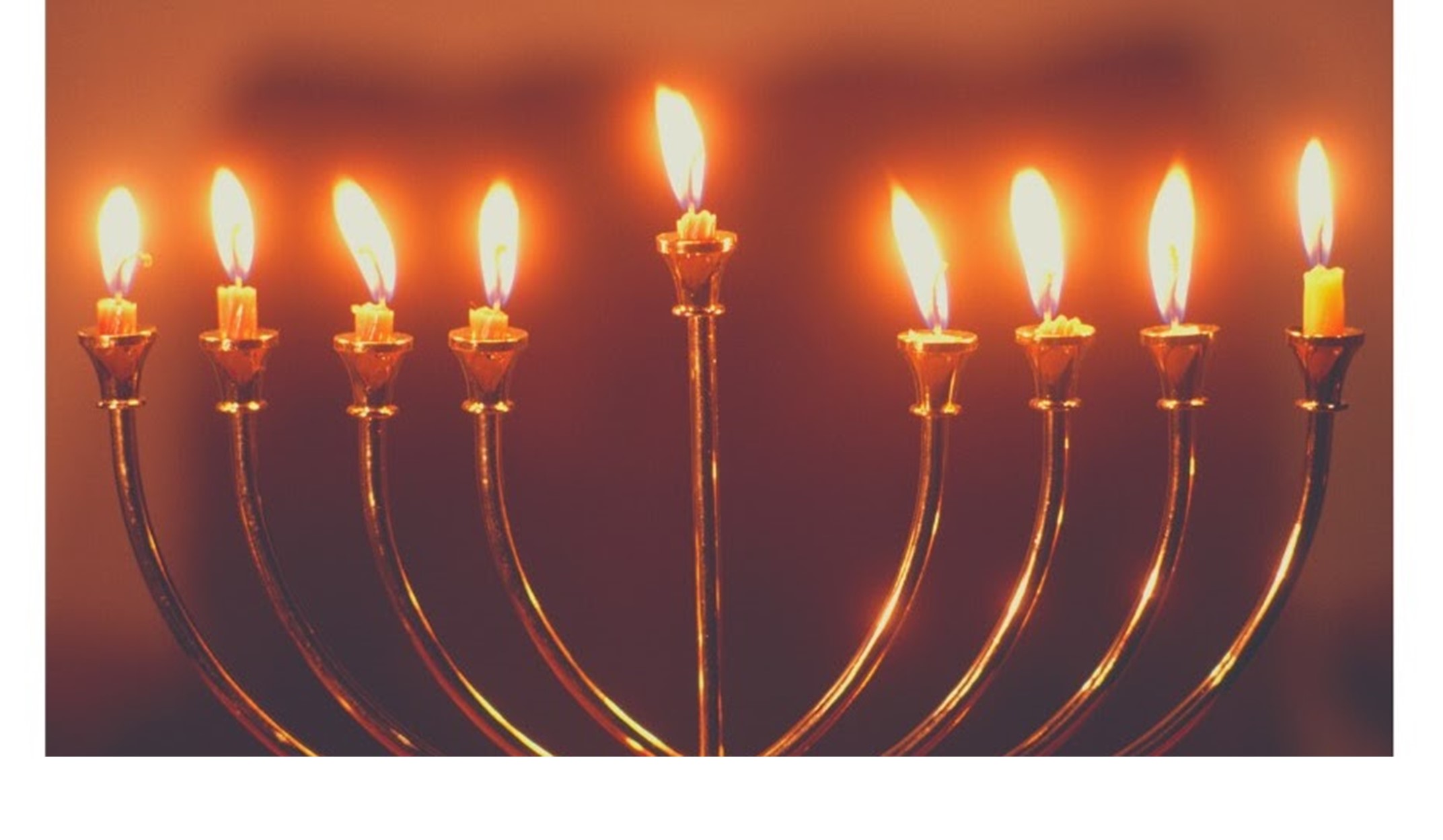
On Thursday, December 7th at sundown, Jews all over the world will begin the celebration of the eight-day festival of Chanukah with the lighting of the first candle on the menorah. The celebration this year will not be the same, as war rages in Israel and Gaza and its repercussions are felt around the world, including of course in our communities.
What is very important to remember in a time of watching the rise of antisemitism all over the world, with a 388% increase in incidents in the United States since October 7th over the same time period last year, is that this holiday celebrates the victory of religious freedom – a cause, unfortunately, still being fought for by millions of people the world over. We must note that Jews are not alone, there has also been a significant increase in anti-Muslim hate incidents.
We are living in very dark times. Wars and hatred spread across the face of the earth, and many in the name of religion. As we begin this holiday season, with many religions celebrating, let us not forget the world is large; there is room for everyone to worship as they choose and not live in fear.
Perhaps we can use the light of this holiday to ask for the wellbeing and safety of all people, regardless to whom they address their prayers.
This blog post is the expressed opinion of its writer and does not necessarily reflect the views of Tysons Interfaith or its members.
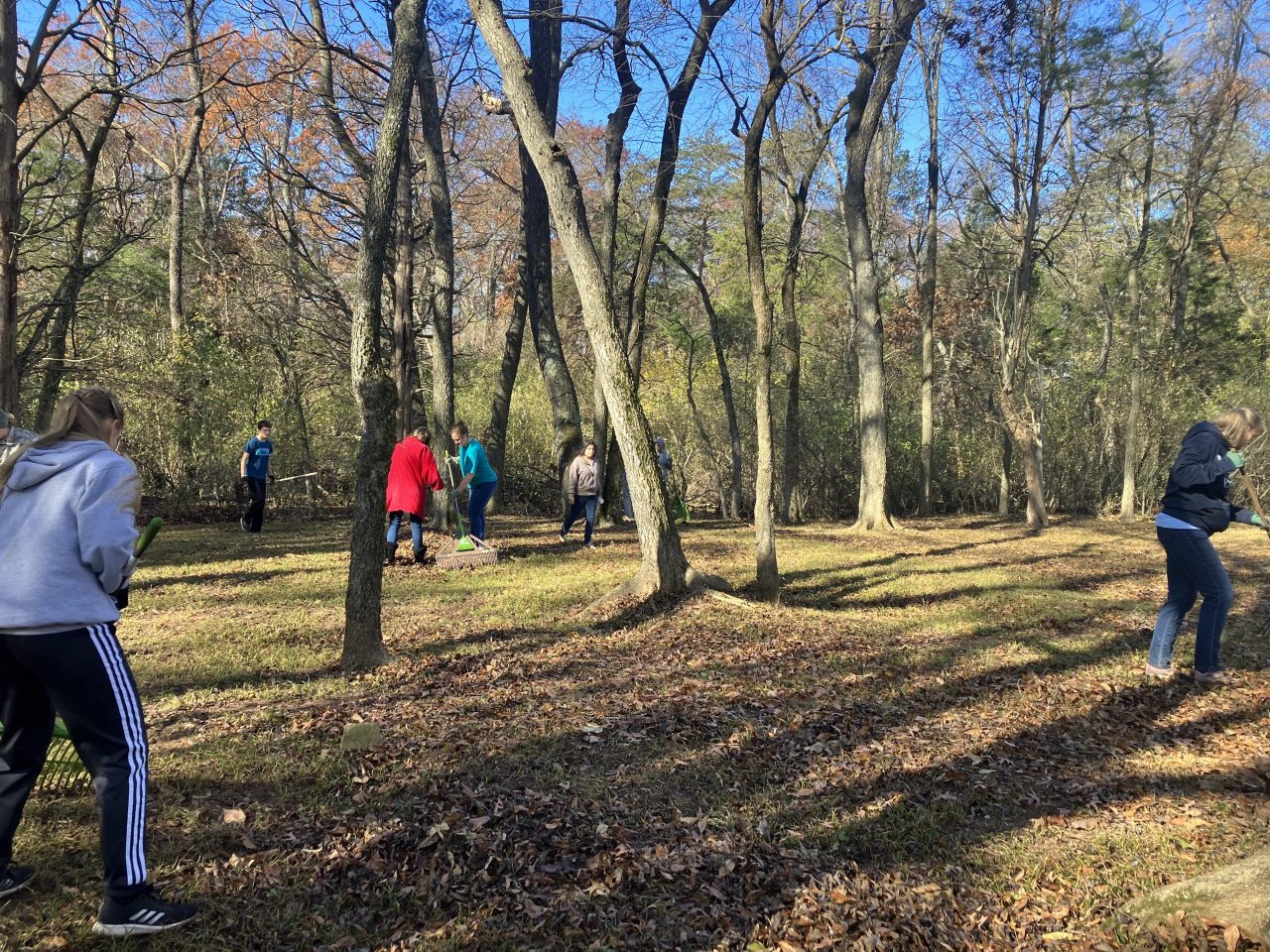
On a beautiful recent Saturday morning, approximately fifty people of different faith traditions — youth and adults — met at the Harris Family Cemetery at Bull Run Regional Park for a fall clean up. Members of Redeemer Lutheran, a Tysons Interfaith partner, were among the participants.
This final resting place of some ninety people, mostly the ancestors of emancipated slaves, was discovered in a wooded glen behind the Atlantis Water Park several years ago.
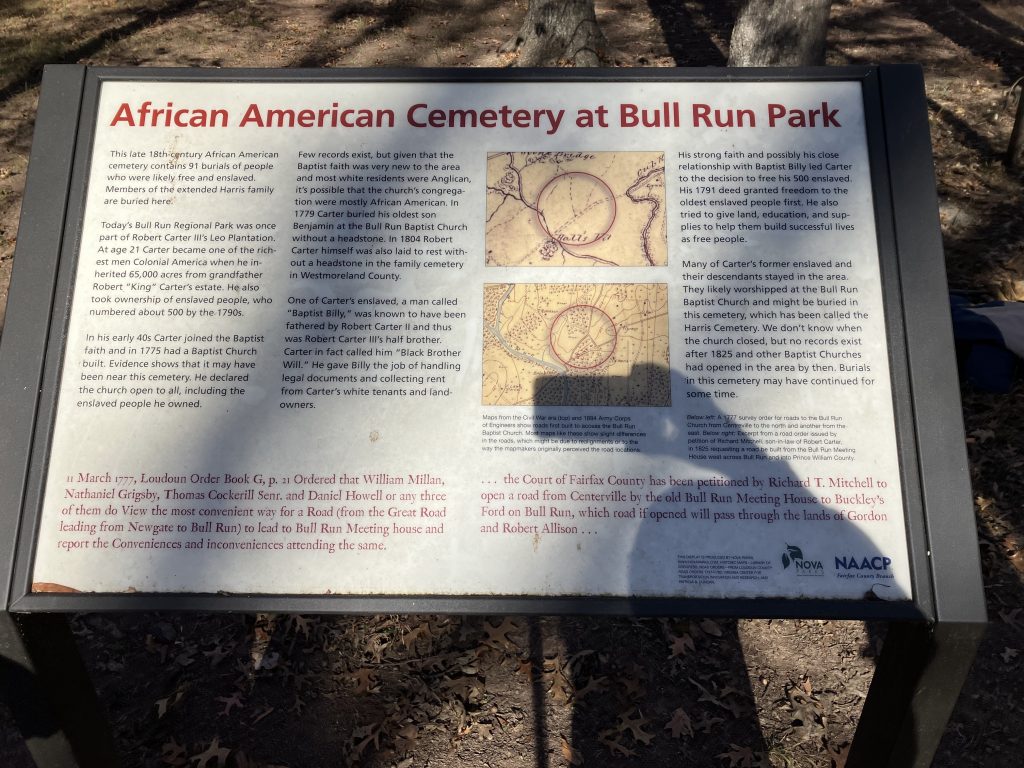
In addition to spreading mulch on the path leading to the burial area, volunteers raked leaves and cleared debris to uncover the white markers that mark the location of interred individuals. Other volunteers repainted these markers.
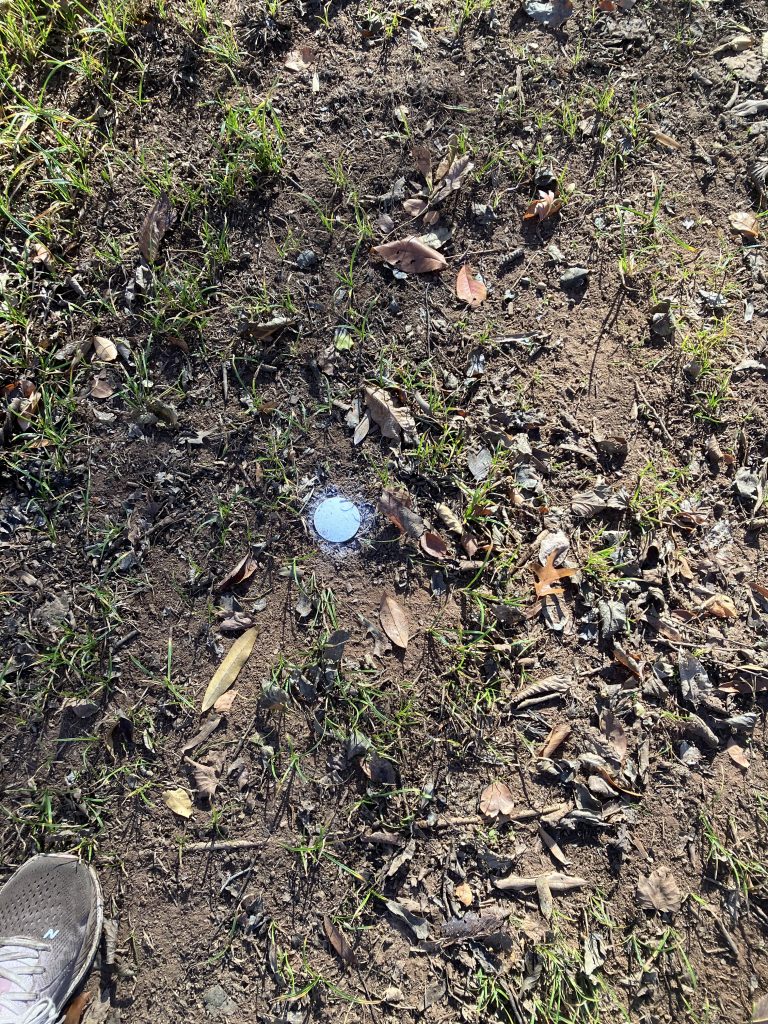
It was very uplifting to help maintain this sacred place, and to learn more about the history of this area and its remarkable people. I look forward to returning to this space.
To learn more about the cemetery, please visit https://www.novaparks.com/parks/bull-run-regional-park/things-to-do
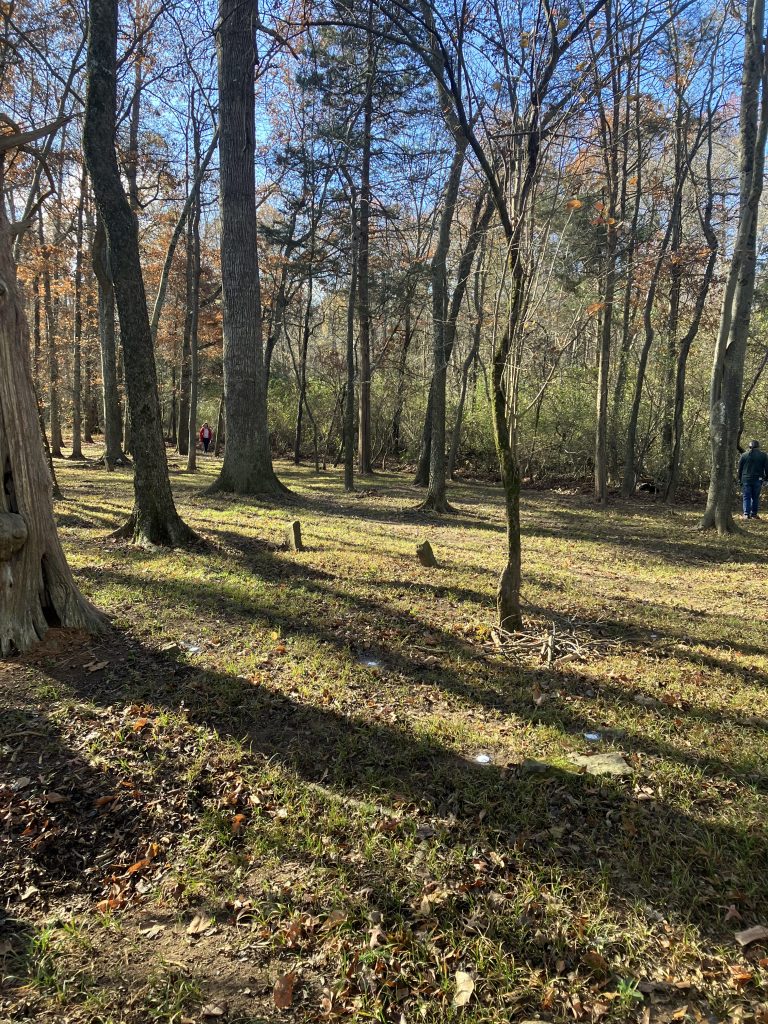
This blog post is the expressed opinion of its writer and does not necessarily reflect the views of Tysons Interfaith or its members.
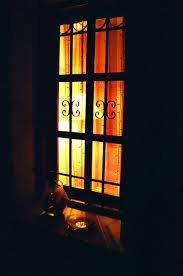
Many people set aside time in their day for prayer, reflection, or meditation. As a Christian Science practitioner, I often find inspiration in daily audio reflections presented by members of our church, called the Daily Lift.
A recent Daily Lift by Janet Clements, a Christian Scientist Practitioner and Teacher from Evanston, Illinois, is entitled An Oasis of Hope and Comfort. Janet shares about her recent encounter with a frightened female Jewish student who was drawn to the light in her office window. Pro-Palestinian protests were occurring outside, and as Janet admitted this young woman into her office, she was reminded of her belief that we are all spiritual children of one God. Like rays of light from the same sun, we are all unique and loved. To Janet, our prayers for peace can be like street light beacons of hope reflecting God’s love for all people.
The Daily Lift is comprised of audio presentations contributed by Christian Science church members worldwide – with the majority coming from the U.S. This particular Lift will remain on the website for thirty days before being retired.
May this segment bring you peace and encouragement.
This blog post is the expressed opinion of its writer and does not necessarily reflect the views of Tysons Interfaith or its members.

With the hustle and bustle of our work lives, our family lives, the holiday seasons, it is all too easy to drop into what some call survival mode … the put one foot in front of the other mode. We rely on habits and demands placed on us by others to move us through each day. Some of us turn down our sensory responses to avoid succumbing to overwhelm. The downside of this numbing is that we simultaneously turn down, maybe even turn off, our capacity to enjoy Life.
I invite you to take a radically different approach that avoids catastrophizing and averts all sense of overwhelm stemming from the many demands that life may be placing on you: TURN UP your sensory responses! By heightening your sensory awareness, you can engage consciously in the “Simple Practice of Noticing” … notice everything! Notice the different shades of green in the trees and bushes. Notice other colors. Notice eyes and eye colors. Notice faces – old faces, young faces, thin faces, and plump ones. Tune into bird calls – when you pay attention, they are there amid city noises. Hear the breezes. Notice the sense of freedom when you deliberately pay attention to what is rich and full in your environment … it is the Creator – God expressing as everything. Soon you will discover an easing of tension in your body that you have unknowingly taken on. With this easing, you will find that you are able to see the Sacred in and as everything.
The practice is truly simple:
- Stop everything – even it is just for a nanosecond.
- Be still for just a moment (or maybe longer because it feels so good).
- Remember ALL creation is the expression of The Creator.
- Tune up your sense of observation and let your curiosity surge.
- Challenge yourself to see the Sacred as whatever you are seeing: humans, other animals, all aspects of the natural world, human creations – art, music, buildings … everything!
- Practice … like with any new habit, you want to consciously reinforce it.
- In a very short time, you will notice that the only sense of overwhelm you are experiencing is awe and wonder! How could this much sacredness have gone unnoticed?
- Develop the habit of noticing the sacred as everything! A deep, rich sense of joy arises and your life is transformed.
This blog post is the expressed opinion of its writer and does not necessarily reflect the views of Tysons Interfaith or its members.
